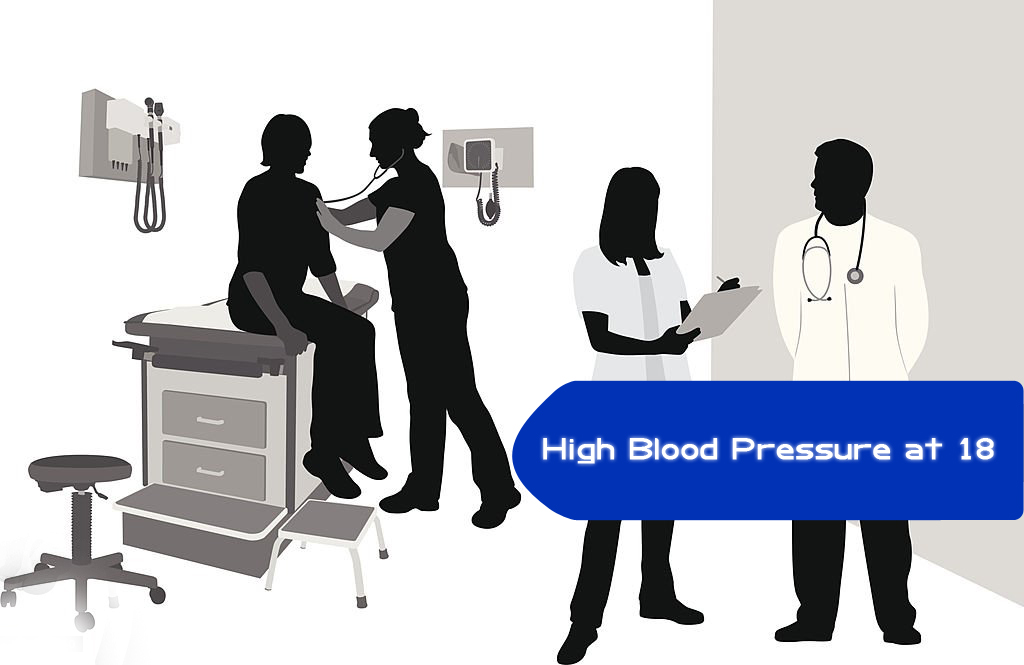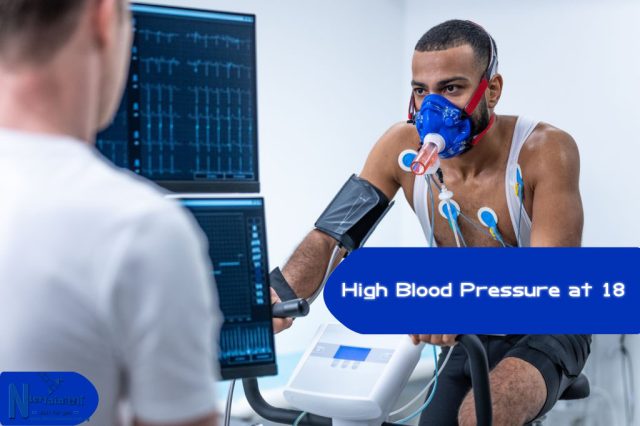Medically Reviewed by:
Name: Ezire Lilian Chinwe
Description: A highly motivated and licensed biomedical scientist with over 7 years of experience, dedicated to advancing healthcare through innovative research and analysis. Expertise includes genetics, microbiology, and immunology with a commitment to staying at the forefront of scientific advancements.
Connecting Youth Hypertension to Midlife Heart Risks
In recent years, medical research has shed new light on the impact of high blood pressure at a young age on the risk of experiencing a heart attack later in life. This article aims to explore the critical connection between high blood pressure at 18 and the heightened risk of a midlife heart attack. We will delve into the various factors at play, the implications for long-term health, and the importance of early intervention.
The Startling Statistics
High Blood Pressure in Young Adults
Young adults may believe they are immune to health problems associated with aging, but recent studies have challenged this assumption. High blood pressure, often considered a condition affecting older individuals, is increasingly prevalent among those aged 18 and younger.
According to the Centers for Disease Control and Prevention (CDC), approximately 4.5% of young adults aged 18 to 24 have high blood pressure. This seemingly small percentage is a significant cause for concern, as it sets the stage for future health complications.

The Midlife Heart Attack Link
Research has shown a clear correlation between high blood pressure during young adulthood and the risk of a heart attack in midlife. Individuals who experience elevated blood pressure levels at an early age are at a substantially higher risk of suffering a heart attack during their 40s and 50s.
The Mechanisms Behind the Connection
Atherosclerosis: The Silent Culprit
One of the primary mechanisms linking high blood pressure at 18 to midlife heart attacks is the development of atherosclerosis. Atherosclerosis refers to the gradual buildup of plaque in the arteries, causing them to narrow and harden. Over time, this restricts blood flow and increases the likelihood of blood clots, leading to heart attacks.
Strain on the Heart
Constantly elevated blood pressure places excessive strain on the heart. The heart must work harder to pump blood through narrowed arteries, which can lead to hypertrophy (thickening) of the heart muscle. This increased workload can result in heart failure or other cardiovascular complications later in life.
Inflammatory Response
High blood pressure triggers chronic low-grade inflammation in the body. Inflammation plays a pivotal role in the progression of atherosclerosis and contributes to the instability of arterial plaque, increasing the risk of a heart attack.
The Importance of Early Intervention
Lifestyle Modifications
Addressing high blood pressure at a young age requires a multi-faceted approach. Encouraging lifestyle modifications, such as a heart-healthy diet, regular exercise, and stress management, can significantly mitigate the risk of midlife heart attacks.

Medication Management
In some cases, lifestyle changes alone may not be sufficient. Physicians may prescribe medications to control blood pressure and prevent further complications. Early intervention with medication can be crucial in preventing midlife heart attacks.

Conclusion
Having high blood pressure at 18 is serious. It’s not just a simple issue; it can lead to heart attacks in middle age. It’s important to know why this happens. Problems like atherosclerosis, extra pressure on the heart, and inflammation are all involved. This shows why it’s so important to start taking care of your health early. By living healthily and using medicine if needed, people can lower their risks. This way, they can keep their hearts strong as they age.
Young adults must pay attention to high blood pressure. They should take steps now to protect their heart health for the future.
FAQs: Connecting Youth Hypertension to Midlife Heart Risks
Q1: What is youth hypertension, and how does it relate to midlife heart risks?
A1: Youth hypertension refers to elevated blood pressure in individuals during their younger years. If left unaddressed, it can contribute to midlife heart risks, such as increased chances of developing cardiovascular diseases.
Q2: How common is hypertension among young people?
A2: While traditionally associated with older adults, hypertension is becoming increasingly prevalent among the youth due to factors like sedentary lifestyles, poor dietary choices, and stress.
Q3: Can youth hypertension really impact heart health in midlife?
A3: Yes, there’s a clear connection. Elevated blood pressure over an extended period in youth can lead to arterial damage, setting the stage for midlife heart risks, including heart attacks and strokes.
Q4: What lifestyle factors contribute to youth hypertension?
A4: Lifestyle factors include unhealthy diet, lack of physical activity, excessive sodium intake, obesity, and stress. Addressing these factors early on is crucial to prevent long-term heart-related consequences.
Q5: How can parents and educators contribute to hypertension prevention in youth?
A5: Promoting a healthy lifestyle, encouraging regular exercise, and providing nutritious meals are essential. Educating youth about the long-term effects of hypertension can empower them to make healthier choices.
Q6: Are there warning signs of midlife heart risks stemming from youth hypertension?
A6: Warning signs may include persistent high blood pressure, chest pain, shortness of breath, and irregular heartbeats. Regular health check-ups and monitoring blood pressure can help identify potential risks.
Q7: Can medications be prescribed for youth hypertension?
A7: In certain cases, healthcare professionals may prescribe medications to manage hypertension in youth. However, lifestyle modifications should always be the primary focus.
Q8: Is there a genetic component to youth hypertension and midlife heart risks?
A8: Genetics can play a role in hypertension. Individuals with a family history of high blood pressure may have a higher predisposition. However, lifestyle choices remain critical in mitigating risks.
Q9: How can schools contribute to hypertension prevention?
A9: Schools can implement physical education programs, provide healthy meal options, and educate students about the importance of maintaining overall health to prevent conditions like hypertension.
Q10: What steps can individuals take to monitor and manage their blood pressure throughout life?
A10: Regular blood pressure check-ups, maintaining a healthy diet, engaging in regular physical activity, managing stress, and avoiding tobacco and excessive alcohol can contribute to lifelong heart health.
Sources:
KidsHealth kidshealth.org/en/teens/hypertension.html
National Institutes of Health www.ncbi.nlm.nih.gov/pmc/articles/PMC10181897/
Center for Disease Control (CDC)https://www.cdc.gov/bloodpressure/youth.htm
Medically Reviewed by:
Name: Ezire Lilian Chinwe
Description: A highly motivated and licensed biomedical scientist with over 7 years of experience, dedicated to advancing healthcare through innovative research and analysis. Expertise includes genetics, microbiology, and immunology with a commitment to staying at the forefront of scientific advancements.









